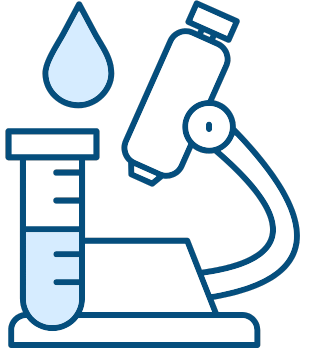Kidney function tests
Kidney problems can occur both as an independent disease and as a complication of other diseases. They can cause dysfunction in other organs and, if left untreated, lead to high arterial blood pressure, cardiovascular problems and anaemia. Kidney pathologies are often diagnosed by blood and urine tests, which are important in detecting dysfunctions of these organs. Tests include measurements of urea, creatinine, uric acid, and cystatin C concentrations, as well as elevated potassium, sodium and phosphorus values. Early diagnosis of kidney disease allows timely detection and slows down the progression of the disease, avoiding serious complications such as the need for dialysis or kidney transplantation. Preventive tests are very important because kidney disease often has no symptoms in its early stages and if detected in time, can be effectively controlled.
| SERVICE | PRICE |
| Creatinine (CREA) | 7 € |
| Albumin concentration determination (ALB) | 6 € |
| Total protein (TP) | 4 € |
| Glomerular filtration rate (from CREA) (GFR) | 3 € |
| Urea (UREA) | 6 € |
| Uric acid (UA) | 6 € |



